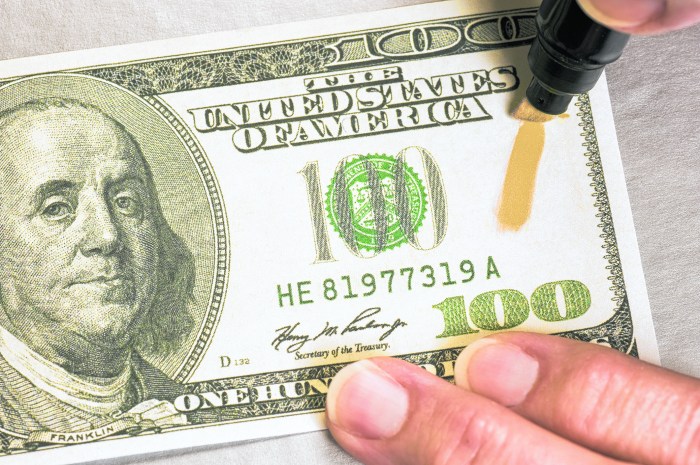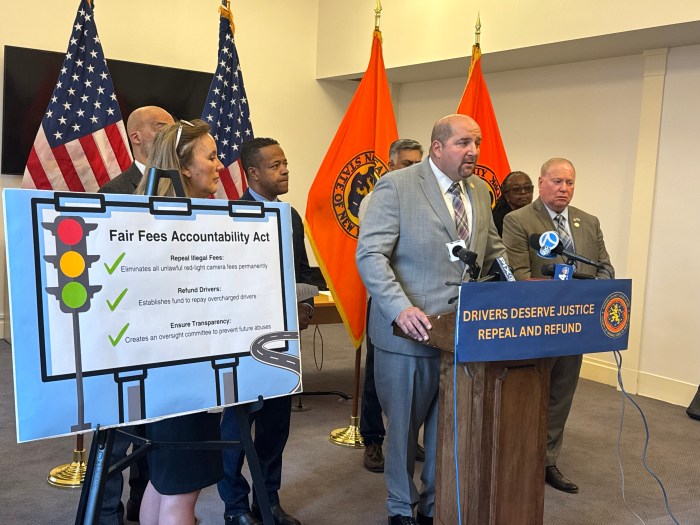Transportation authority to appeal decision
The Metropolitan Transit Authority stands to lose about $1.5 billion in revenue per year after a New York State Supreme Court judge ruled on Wednesday, Aug. 22 that the MTA payroll tax is unconstitutional. The MTA plans to appeal the decision made by Judge R. Bruce Cozzens Jr., according to a statement released last week.
This didn’t stop local officials from calling the ruling a “win for taxpayers” during a press conference last Thursday. Nassau County Executive Edward P. Mangano, along with numerous members of local and state government, were out in full force to applaud the decision, and plead to the powers that be to not grant a successful MTA appeal.
Employers located within the downstate area served by the MTA, which runs New York City’s buses, subways, commuter railroads and some major bridges and tunnels, pay the tax. The MTA serves 8.5 million passengers a day, according to its website. Its current budget totals nearly $13 billion.
Nassau officials asserted that the state needed home rule messages from the municipalities or a two-thirds vote in both houses of the State Legislature, neither of which occurred.
“The MTA payroll tax is a special law, which does not serve a substantial state interest,” Cozzens Jr. wrote in the decision. Because the state did not seek a home rule message, “this was passed unconstitutionally.”
Mangano filed the lawsuit in 2010. This was after the cash-strapped agency was looking to close a $1.8 billion budget gap, according to the Supreme Court decision.
Governor David Paterson enacted the tax in 2009. It was eliminated for small businesses with payrolls under $1.25 million and private and public school districts earlier this year.
“Today, we gather to seek retroactive relief from this unconstitutional tax,” Mangano said. “This costly tax has stifled economic growth by chasing employers and job creators out of our region.”
Employers pay as much as 34 cents per $100 of salaries via the payroll tax, according to figures released. Cozzens did not order or direct the state to stop collecting the tax.
The MTA noted in a statement that four previous lawsuits challenging the constitutionality of the payroll tax had been dismissed. Of all the cases with similar arguments, this case is the first to reach the appeal level.
“We will vigorously appeal [the Aug. 22] ruling,” the statement read.
Without the payroll tax or another source of funding, “the MTA may be forced to implement a combination of extreme service cuts and fare hikes,” the MTA statement read. “The Payroll Mobility Tax remains in effect for now, and we expect that it will survive this legal challenge.”
Nassau has paid $9.9 million in MTA payroll taxes since its inception, while county business owners have paid roughly $80 million per year. The county plans to seek retroactive relief for funds it has paid since the law was enacted. It is unclear if the county will be able to seek similar relief on behalf of county businesses, officials said last Thursday.
Mangano said if the MTA successfully appeals, he would rule out challenging that ruling.
“We’ll analyze that,” Mangano said. “Again, we call on them to listen with both ears to the loud message here that goes beyond the decision.”
The Village of Mineola, one of the original plaintiffs in the lawsuit, paid $21,000 per year and more than $70,000 since 2009. The village paid a portion of its share of the tax weekly, according to village officials.
State Senator Carl Marcellino did not mince words when it came to his opinion of the tax at the press conference. “This tax should never have seen the light of day,” said Marcellino. “It is the dumbest thing in the world to tax jobs, when the first thing we need is more jobs, in this state. This is a tax that actually punishes people for hiring people: how dumb can you be?”
While agreeing with Marcellino that the court decision should not be appealed, Nassau County Legislator Rose Walker viewed the situation from a different perspective.
“I look forward to having all the stores in our communities opening back up for business…all the stores that had to close just because they couldn’t survive in the economy as it was today,” said Walker.




























